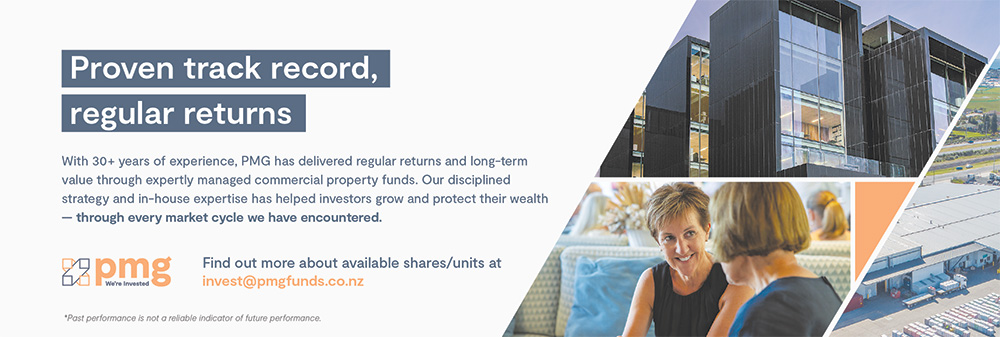Every time the market wobbles, we see it happen – fear creeps in and investors either look for the exit or sit on the sidelines while their cash quietly devalues. It’s a natural response as we all seek certainty, especially in times of volatility. However, there are lessons to learn from a shifting cycle and an art to knowing when to hold ‘em… or to run.
During more than 15 years in this industry I’ve learnt many lessons, but one of the most important is that long term performance is rarely determined by short term discomfort.
As it stands, global markets remain unsettled. Recent US policy decisions and ongoing geopolitical tensions are contributing to a murky outlook. But, in New Zealand, the tide is starting to turn.
The Official Cash Rate (OCR) has fallen by 200 basis points* since August 2024 and it is forecast to drop further by year end. Interest rates are trending down, inflation is easing and early signs of economic recovery are beginning to emerge.
We’re seeing it first hand:
- Recent property valuations across our portfolio have shown an average increase of 2.4 per cent from 2024
- Distributions in some of PMG’s funds are starting to lift, supported by strong tenant relationships and disciplined proactive asset management
The data is telling and, for investors who focus on fundamentals and long term growth, it’s worth paying attention.
Commercial property has always been a long term game. It’s driven by careful management, stable tenancies and real asset performance, as opposed to headlines or hype. Selling at the start of a recovery cycle often means locking in a loss just before conditions improve.
A strategic window
For investors looking to strengthen their position, these conditions present a rare opportunity, arguably the best window of opportunity since the 2008 Global Financial Crisis.
PMG’s secondary market gives investors access to high quality, income producing assets without waiting for a new offer to open – see below for details.
At PMG, we’ve operated through multiple economic cycles and, in nearly every case, investors who came out ahead were those who played and stayed the course when conditions were at their most uncomfortable.
We’re not in the business of timing the market, we’re in the business of staying in it long enough to realise the benefits of diversification, adding value and market resilience.
Now more than ever, it’s about cutting through the noise and focusing on fundamentals because, in this market, fortune will favour the patient.
However, we always recommend investment decisions are made with the guidance of a licensed financial advice provider who can help assess whether an investment is right for your personal circumstances.
To learn more about PMG’s approach, or explore current investment opportunities, visit www.pmgfunds.co.nz.
Please note: PMG’s secondary market operates on a queue system and there is a fee. The ability to buy or sell shares or units depends on demand and availability at the time. There is no guarantee of liquidity and transaction times may vary.
*At time of writing the OCR was 3.50%, but by the time you read this it’s likely the OCR will have dropped another 25 bps to 3.25%.
Disclaimer: The information in this article is of a general nature and was current as at May 2025. It is not intended to be regulated financial advice for the purpose of the Financial Markets Conduct Act 2013 and does not take your individual circumstances and financial situation into account. As with any investment, commercial property carries risks, including the risk of loss of capital. Past performance is not a guarantee of future results. PMG does not provide financial advice about whether an investment in one of its funds is right for you. Please seek advice from a licensed financial advice provider before making any investment decisions. PMG’s secondary market matching service operates on a queue system, and there is a fee. The time it takes to move shares or units can vary depending on the number of sellers in the queue and the level of demand.


